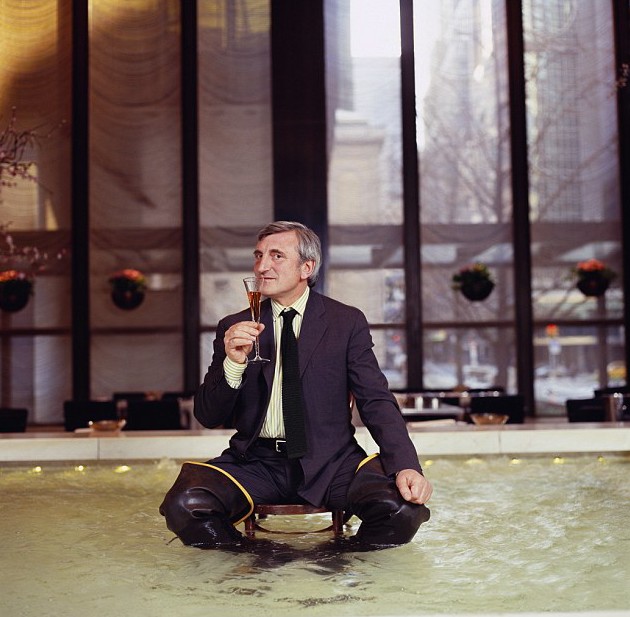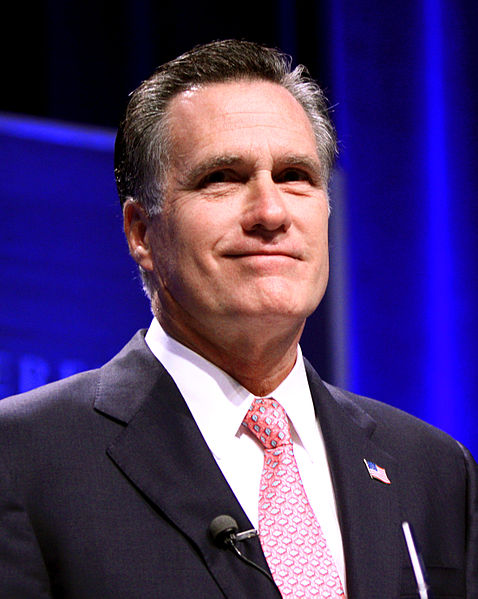The band played on as the Titanic went down, and Julian Niccolini, Managing Partner of the Four Seasons, may likewise sink with the ship.
The hoary bastion of power lunches for privileged New Yorkers is soon to shutter, and Niccolini will either reopen it downtown or be doing a stretch in prison. That’s because the infamously “handsy” proprietor was arrested earlier this year for the sexual abuse of a woman who attended a party at the dated establishment.
In a very good GQ article, Robert Draper sees the fall of Four Seasons and its unruly ruler in terms of a generational shift, when a passé concept of white, male privilege ran up against new table manners.
An excerpt:
Whichever room you choose, you’ll notice two things. First is that the food is exorbitant (over $70 for some entrées) and often lackluster. A wild snapper with corn and guajillo sauce I had at lunch seemed a tired throwback to the nouveau-southwestern craze a couple of decades back. The ahi tuna burger from the bar menu was resoundingly inedible. Such trifles, as even restaurant critics who have consistently praised The Four Seasons acknowledge, are ultimately beside the point. You come here to bask in the spaciousness of what Jackie Onassis liked to call “the cathedral.” You come to take your rightful place in the pantheon and to be seen occupying that choice real estate. About a thousand faithful Four Seasons customers have a “house account”—meaning the bill typically goes directly to their companies. My old boss, former GQ editor-in-chief Art Cooper, had one such arrangement with The Four Seasons. According to Julian, Art spent about $200,000 a year at his favorite restaurant and never once saw a receipt—all the way up until June of 2003, when he rose from his corner booth, lumbered over to a barstool, succumbed to a stroke, and died at the age of 65.
That’s the second thing you’ll notice about The Four Seasons: Its clientele is, eh, not youthful. Still, it’s possible to look down from Siberia upon the octo- and nona-genarians and to imagine them as younger, hungrier, Bonfire of the Vanities versions of their present-day selves.
Julian Niccolini was present at their ascension, and they at his. On the subway to work each morning, he studied the Times, the Daily News, and Women’s Wear Daily to find out which celebrities were in town, what schemes the ultra-wealthy were up to, and who was cavorting with whom. The Grill Room’s seating chart became Julian’s interpretation of America’s pecking order. Even the richest of patrons would come to learn that this was Julian’s roost. As longtime customer Bill White, the CEO of the development firm Constellations Group, puts it, “The Four Seasons is one place where the customer isn’t always right.”
Julian’s reputation as a host persisted to the point that he was eventually penning columns in Gotham, Details, and the New York Observer, where he’d flatter this or that “beautiful” customer while gossiping about others (Bethenny Frankel urinating in a wine bucket). He also dispensed wisdom that ranged from the practical (like when to wear a linen suit) to the prurient (like what to do when a woman hits on you when your wife is standing nearby). At least a few uninitiated readers must have wondered just who this pretentious reptile was.•


